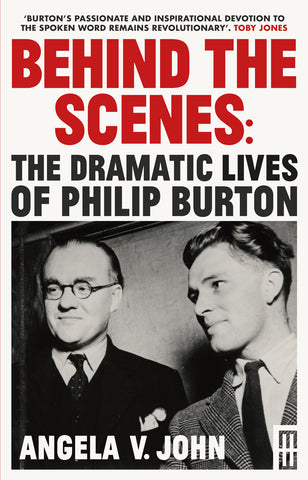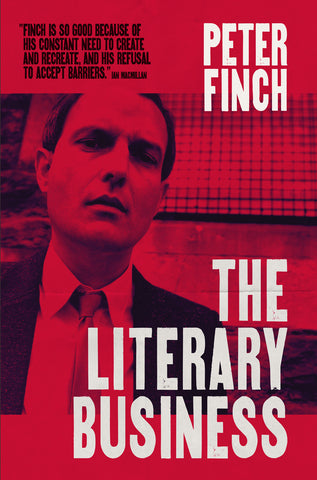I’m fifty one. I guess I’m middle-aged. You knock around a bit and it reaches you. I didn’t much like the look of the other option. Some friends didn’t make it. I’m also white, male and have been going to literature festivals in Cardiff for twenty-eight years. I was young, white and straight when I went to my first one. I had a degree by that point but I was working on a building site and delivering pizzas for a living.
In a recent article in the Wales Arts Review, blogger and music event organiser Kelly Keegan discusses the Cardiff Book Festival and audience demographics based entirely on her own opinion. The main thrust of which seems to be that the audience was predominantly white, middle-aged and heteronormative and then drew a conclusion that publishing and hence opportunities for this was similarly coloured and sexually orientated.
How would she know?
She offers no evidence for this, it is all subjective. The WAR has chosen to illustrate her article with a picture for a poetry event that was a held on a Friday night at Jury’s Inn Hotel on the 7th of September. I was at that event. There were six poets and it was skillfully chaired by the writer and poet Hanan Issa.
Four of the poets were women, two men. I know one was thirty, a single mum and a lesbian because she announced it in her introduction. One was straight some of the time as she mentioned the poetry was about the break-up of her relationship with a man. The others didn’t make it clear. The average age of the poets was I’d guess about the same as the audience, say thirty-five. I didn’t ask them but most of them looked younger than me.

My experience of book launches is that you get your friends, your family, your family’s friends and your friend’s family to turn up and hope there’s some other people who might like poetry and of course, there are, as CBF’s organisation and publicity illustrated.
The audience wasn’t all white or even middle aged as the picture used by WAR clearly shows - Eric Ngalle is one face in the middle of it. As Keegan points out, Ngalle had a play on at the festival. Cardiff Book Festival sold close to 150 tickets for the poetry event. Plus there were a few people like me who blagged their way in because they were either related to the poets or publishing them.
A hundred and fifty people for a poetry event on a Friday evening. This on any reckoning is a successful literature event. Of course I’m bound to say this as I’m middle aged, have a vested interest in maintaining the establishment and also because the publishing company I’m running is one of the sponsors of the festival.
But to take a music festival, held a week before, again in Cardiff, along Womanby Street. There was a younger crowd, there was more drinking, but for the actual events the numbers were lower while the genetic mix was the usual (for Cardiff). I watched a gig by the Rainbow Maniacs, a Cardiff band with a growing reputation but with as yet nothing to sell beyond their live music. I’m usually one of the oldest at a music gig these days and again I was. Although I suspect if I go to the next Natalie Merchant concert they’ll all be about my age.
The problem with Keegan’s article and it is shared by too much op-ed writing is, that is all they are. There are no facts or even an attempt at journalistic integrity - they are just opinions. The one section with actual research was her account of a talk on the Faber Academy and how all the writers mentioned in the discussion were men (except Jane Austen) while most of the people signing up to the type of courses promoted were women.
This is intriguing. Is there a gender bias on the willingness to invest in developing a skill like writing? It would be interesting to see some figures from course providers like Ty Newydd and the Arvon on this.
Three recent winners of the Welsh Book of the Year - Deborah Kay Davies, Crystal Jeans and Alys Conran - all undertook long apprenticeships, both with universities and through their own self-guided reading and writing before publishing their first break-through books.
John Sam Jones, a successful short story writer in the '90s and author of Welsh Boys Too, a collection of stories on what it meant to be gay and a writer in rural conservative Wales, went back to college to try to understand more about the structure of the memoir for his fifth book (out next year, Sex is Always Better in German). Writers don’t develop in isolation, they need a framework, opportunities to publish work in progress, mentoring and editing.
In addition, Keegan's article might be a way into reflecting on how difficult it is to reach audiences especially in literature. And how audiences should be reflected in the programming - CBF are praised for their programming - which was diverse and, I thought, imaginative and eclectic.
For literature it is useful to ask what is the actual activity we’re being asked to watch, share and occasionally participate in. The original success of poetry slams was partially down to them being a competition. Someone gets to win. Poetry as competitive sport.
The John Tripp Award for Spoken Poetry was always good entertainment. I’ve been involved in the Penfro Book Festival as a programmer for ten years and one of the most popular activities are the workshops aimed at helping people develop their writing. These usually sell-out. A full house is fifteen people.
In a week's time we're promoting an event at the Roath Park Pub on City Road in Cardiff. It is a launch and reading for Kate North, a poet and teacher whose second collection is The Way Out, and João Morais, a young Cardiff-based writer with a first collection of stories which is about Things That Make The Heart Beat Faster.
They are both writers with very different backgrounds with something to say about life and experience. According to the Facebook page over eighty people are at least interested in coming. They can't all be friends and family. It's 7.30 pm, if you fancy it?

The main events at a literature festival usually fall into a few broad categories. An author most people have heard of and even read so the audience come to meet the actual writer talk about their own work and then there’s the discussion where there’s a debate or even with a bit of luck an argument. Both can bring an audience to an event. And finally there’s the straight lecture.
Sometimes they can all get mixed up, I once went to a lecture by Ian McEwan on Darwinism. It was not very good. And then, us, the audience, sometimes buy the book in question. One of the reasons authors are so keen to get an invite to a festival is that its a great opportunity to sell some books.
Festivals are exercises in commerce but I don’t feel that’s what they are all about. There is something about having a shared experience in a public space. It’s not anywhere near as good as theatre but it is an afternoon/night out with conversation and human contact.
One of the challenges for programmers and publishers is that books themselves do not not usually involve a shared experience. I like this but will you like it? But that in a way is why we are in it. It’s an attempt to connect. The success of book clubs and literature festivals is that they have attempted to create a clean, well-lit space to discuss individual reading pleasure often around a meal with a few drinks.
However, the book club or festival is after the fact of the actual individual pleasure or otherwise of reading or alternatively a way into a future experience. The members and audiences don’t actually read the book in bed together. Maybe that could be an event for Cardiff Book Festival next year? It could be a heteroextraordinaire sleep-together, after all once you’re middle aged the only thing you do in bed after reading is fall aslezzzzz...


